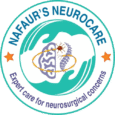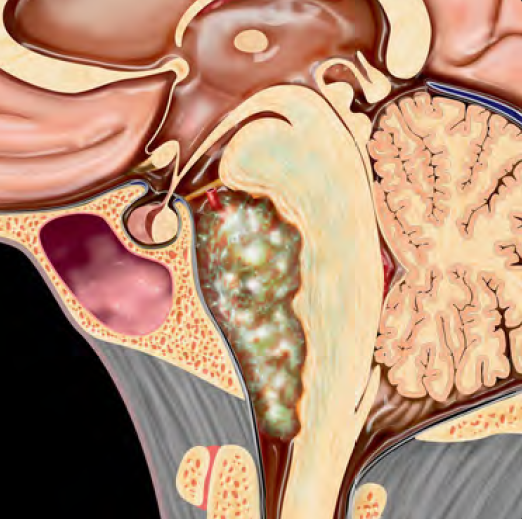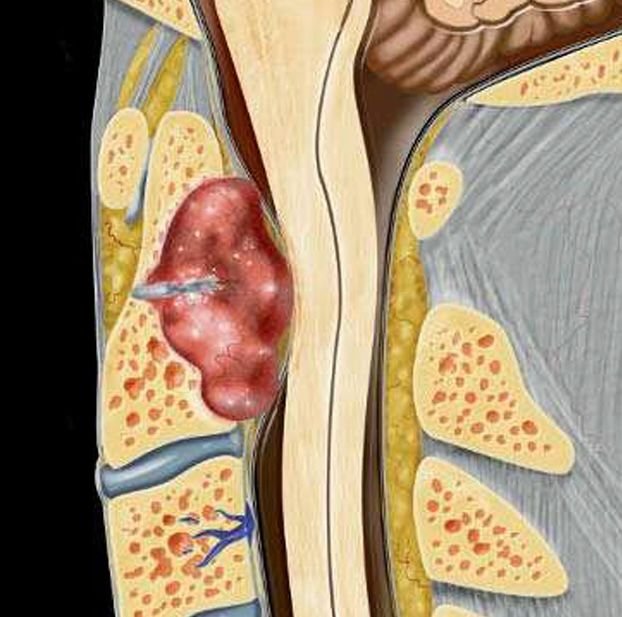Tarlov Cyst
Tarlov Cyst
A Tarlov cyst, also known as a perineural cyst, is a fluid-filled sac that forms at the nerve root sheath, most commonly in the sacral region of the spine. These cysts are filled with cerebrospinal fluid (CSF) and are usually located between the protective layers of the nerve roots. Although most Tarlov cysts are asymptomatic, in some children they may enlarge and compress nearby nerve roots, causing neurological symptoms such as pain, numbness, weakness, or bladder/bowel dysfunction. These cysts are rare in children, but when present, require careful evaluation and, in some cases, surgical management. 🌍 Tarlov Cyst in Bangladesh Perspective In Bangladesh, awareness and diagnosis of Tarlov cysts in children remain limited. Due to a lack of routine spinal MRI, many children are misdiagnosed with conditions like orthopedic hip disorders, sacroiliitis, or urinary tract infections, especially when presenting with pelvic pain or bladder symptoms. Dr. Md. Nafaur Rahman, a leading pediatric neurosurgeon at the National Institute of Neurosciences & Hospital (NINS) and Bangladesh Paediatric Neurocare Centre, specializes in diagnosing and treating rare pediatric spinal conditions, including Tarlov cysts, using microsurgical and minimally invasive techniques. 🧬 Causes and Pathophysiology Congenital weakness in the nerve root sleeve can lead to the formation of a CSF-filled sac Acquired causes: trauma, inflammation, or prior surgery Cysts may become symptomatic if they fill with cerebrospinal fluid under pressure, expanding in size and compressing nearby nerves 🧒 Clinical Features in Children While most Tarlov cysts are asymptomatic, when they do cause symptoms, they can significantly affect a child’s quality of life. Signs may include: Chronic lower back pain or sacral pain Leg weakness or numbness Pain in the buttocks or thighs Difficulty walking or climbing stairs Bladder or bowel dysfunction, including urgency or incontinence Sensory disturbances in the perineal or pelvic region Pain that worsens with standing, coughing, or Valsalva maneuvers In Bangladesh, these symptoms are often overlooked in children due to a lack of awareness about pediatric spinal cysts. 🔍 Diagnosis 🧠 MRI Lumbosacral Spine – Gold Standard Identifies the location, size, and number of cysts Shows whether the cyst is causing nerve compression or spinal canal narrowing 🧪 CT Myelography (in select cases) Helps confirm communication with CSF space and differentiate from other lesions 🧬 Neurological Examination Assess motor strength, reflexes, sensory loss, and signs of nerve root irritation 🛠️ Treatment Options Most small, asymptomatic cysts do not require surgery and can be managed conservatively. However, for symptomatic Tarlov cysts, surgical treatment may be necessary: 🩺 Conservative Management Observation with regular MRI follow-up Physiotherapy and pain management Antiepileptic medications (e.g., pregabalin, gabapentin) for neuropathic pain ✂️ Surgical Management (When Symptomatic) Performed by an experienced pediatric neurosurgeon like Dr. Md. Nafaur Rahman: Microsurgical Cyst Fenestration or Excision: Drainage and partial/complete removal of the cyst wall Cyst-to-subarachnoid shunt to allow continuous drainage Nerve root decompression to relieve symptoms Advanced intraoperative neuromonitoring is used to protect spinal nerve roots 🔄 Postoperative Outcomes With expert surgical intervention: Pain is significantly reduced Motor and sensory function improves Bladder and bowel function may normalize Recurrence is rare with complete cyst management Post-surgical rehabilitation and close monitoring are essential for optimal recovery. ⚠️ Risks of Non-Treatment Untreated symptomatic Tarlov cysts can lead to: Chronic disabling pain Bladder or bowel incontinence Motor deficits or gait abnormalities Mental health impact in school-aged children due to persistent symptoms 👨⚕️ Why Choose Dr. Md. Nafaur Rahman? Specialized in pediatric spinal neurosurgery and rare cystic disorders Performs minimally invasive and microsurgical decompression techniques Operates with modern tools and neuro-monitoring at NINS and BPNC Known for accurate diagnosis, safe surgery, and compassionate follow-up Trusted by families across Bangladesh for child-centered neuro care 📞 Book a Consultation Today Dr. Md. Nafaur Rahman Assistant Professor, Pediatric Neurosurgery, National Institute of Neurosciences & Hospital (NINS) Chief Consultant, Bangladesh Paediatric Neurocare Centre 📞 Serial/Appointment: 01912988182 | 01607033535 🌐 Visit: www.neurosurgeonnafaur.com







